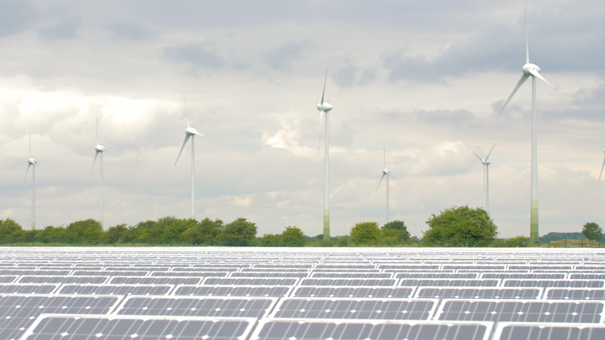
Green Energy
Jobs, growth and energy independence start with green power
February 19, 2026

June 20, 2025
We've all heard the buzz about Sustainable Aviation Fuel (SAF) being the magic bullet for aviation's carbon woes. Typically, the fuel is made from corn grain, oil seeds, algae, agricultural residues, forestry residues, and other fats, oils and greases. The reason it is deemed ‘sustainable’ is because these alternatives have a significantly lower carbon footprint than their fossil fuel contemporaries - on a surface level. However SAF’s do not reduce tailpipe emissions, they produced the same amount of CO2 as burning kerosene. The CO2 savings are claimed from the production process, i.e its assumed that the any biological matter used to make fuel generates zero CO2 emissions on the basis that plant growth will have absorbed CO2 from the air relatively recently so the combustion simply re-releases that CO2. This compares to fossil fuels that locked carbon away millions of years ago which is then released when burnt meaning “new” or additional CO2 is released into the atmosphere.
Are sustainable air fuels really the answer for the aviation centre to transition to net zero? Or is there a dark side to this seemingly miraculous solution?
What critical factor is not being addressed is the source of these alternative fuels . To meet existing aviation demand entirely with biofuels made from ‘energy crops’, such as rapeseed, miscanthus and poplar wood, it would require about half of UK agricultural land. It's very production will lead to deforestation for more agricultural land and subsequent catastrophic biodiversity loss, extensive water usage and competition for land with food crops.
Over the last 50 years, wildlife populations have experienced a staggering 73% decline. The UK is already one of the most nature-depleted counties in the world. We cannot sit by and allow the government to destroy more wildlife and green space and throw millions into greenwashing ‘sustainable’ alternatives to reach ‘net zero at any cost’.
The UK Government is using SAFs as a justification to expand the entire aviation industry and approve a third runway at Heathrow airport. Alongside reforms and plans to modernise UK airspace, the government states it is ‘taking great strides in transitioning to greener aviation’. It added SAF reduces carbon dioxide emissions, compared to fossil jet fuel, by around 70%. The Chancellor announced that the government is supporting UK producers by investing £63 million in 2025-26 into the Advanced Fuels Fund and setting out details of a Revenue Certainty Mechanism.
But when asked if the government would be able to produce evidence that showed SAF really would make that much difference, Chancellor Reeves replied: “We’ve asked Heathrow to come forward with plans for that third runway by the summer, and we’ve said that it needs to meet strict rules about environmental and carbon emissions. I do believe they can. And Heathrow believes that they can as well.”
However, the claim that SAFS are really a game changer to the extent that Reeves alleges is not supported by scientific and environmental experts. Damian Carrington, environment editor at The Guardian, highlighted some truths about the alternatives in a recent analysis, stating: “The Climate Change Committee (CCC) says overall UK emissions must fall by 63% by 2035, compared with 2019. But there is agreement among analysts that building an SAF supply chain to displace much of the existing demand for jet fuel, let alone that from a big expansion in flights, will be "slow and difficult”. It will be years before large long-haul planes can be powered by renewable energy, which is already very expensive. According to the United Nations’ International Civil Aviation Organisation, SAF produce similar amounts of carbon dioxide when burned.
The aviation sector used 11.09 million metric tonnes of aviation fuel in the UK in 2022. The Government plans to have just 10% of its jet fuel made from fossil-fuel alternatives in 2030 - which is just 1.1metric tonnes, and their own forecast is that SAFS will only cut emissions by 6.3m tonnes by 2040. The Climate Change Committee say this is already ambitious. Now, there are 16.8 million hectares of agricultural land in the UK, meaning it would require 840,000 hectares of land to grow crops to meet this demand for 10% - which is 2,075,685 acres. That is more than all of Gloucestershire, Warwickshire and Herefordshire combined!
SAF is a significantly misleading term. The majority of people believe it to be completely sustainable, but it’s just another greenwashing tactic. It doesn’t solve aviation’s emissions problem, it just shifts the blame. The truth is, we cannot burn our way to net zero. SAF still releases CO₂ when burned, and its production demands vast amounts of land, water, and energy -destroying forests and competing with food crops.
But here’s the good news: real solutions exist.
At Ecojet, we’re proving that hydrogen-electric planes - not SAF - are the future of truly sustainable aviation. Later this year, we’re launching the world’s first zero-emission commercial flights right here in the UK, using 19-seat aircraft powered by ZeroAvia's ZA600 hydrogen-electric engine. These planes will connect regional destinations with clean, zero-emission flights of up to 300 miles.
And this is just the beginning. Our next step? Connecting UK cities with European destinations, using larger 70+ seat aircraft, fitted with ZA2000 engines. These aircraft will be capable of flying up to 1,000 miles - without burning a single drop of fossil fuel.
This is the future of aviation - not SAF, not offsets, not corporate or governmental greenwashing. Real, clean, zero-emission flight.